Hi readers! Welcome to today’s homeschool curriculum forum on science!
As most of you know, I am currently using Abeka science in our homeschool. I have to say that this has been a wonderful addition to our homeschool this year. Not only does it require very little planning on my part, but it does include some hands on activities as well.
Since this program has a variety of resources included, I thought it might be helpful if I told you which things I purchase when doing Abeka Science.
One thing I don’t love about Abeka are all of the little booklets that you have to purchase. It would be nice if they came all together to make life easier. But for the science I always purchase the teacher’s manual or “curriculum” as they are often called. The student work text, the student workbooks, and the answer keys if I am teaching an upper grade. I also purchase the tests and quizzes and answer keys to those as well.
I do not always choose to purchase the optional visual aids, however if you plan to use this curriculum for several years it is worth it as the materials are re-used across several grades so you will get good use out of them.
Another great thing about Abeka is that you can typically find their materials used at a very reasonable price. Just be aware of which version you are purchasing and whether or not you can still purchase workbooks that correlate with that version.
Pros:
- Material is grade appropriate.
- Lessons are easy to teach and plan.
- Includes hands-on activities to reinforce lessons.
- Re-uses colorful flashcards through the grade levels so you only have to purchase once.
Cons:
- Can be a little confusing for the teacher with several booklets to purchase.
Once my children are a little older I plan to switch from Abeka to God’s Design For Science by Answers in Genesis. This curriculum is a four year curriculum that is meant to be repeated with older grades. Unfortunately I did try to start it but the materials were just too advanced for my younger children, so we will wait to start this.
Pros:
- Focuses on God as Creator.
- Hands-on activities to reinforce skills.
Cons:
- Can be expensive, but not so bad when you consider it is four years worth of curriculum.
A fun hands-on alternative for younger children is the Nancy Larson Science program. I have been tempted to try this a few times, however they currently only offer Science K to Science 4. With my oldest going into 5th grade, I wasn’t sure if it would benefit my children or not.
The other issue I have with this program is the price. Materials are quite expensive, however it comes in a complete kit. So it is tempting to purchase a science “kit” that includes everything you need!
Pros:
- Hands-on and fun activities for younger learners.
Cons:
- Expensive
- Currently only available for elementary grades.
So, now comes the fun part!
What are your favorite Science curriculum, resources, websites, etc? Leave a comment below discussing your choices for this year and why.
Feel free to ask questions or reply to each other too!
It’s my way of doing a forum without actually doing a forum haha!
And hopefully this will help us all as we start the process of researching curriculum, and trying to decide what will be the best fit for our homeschool.
Note: Please keep today’s conversations geared towards SCIENCE, I will be posting one for each subject separately so we can keep our comments organized.
Click here if you missed my previous Homeschool Curriculum Forum posts!
Disclosure: This was not a sponsored post, I may however be affiliated with one or more products mentioned. The opinions expressed in this post were not influenced by the company. They are products I have used and felt like sharing, cuz’ it’s my blog and I can if I want to.


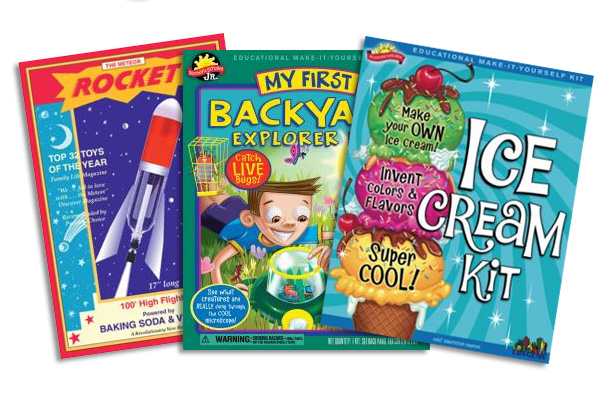
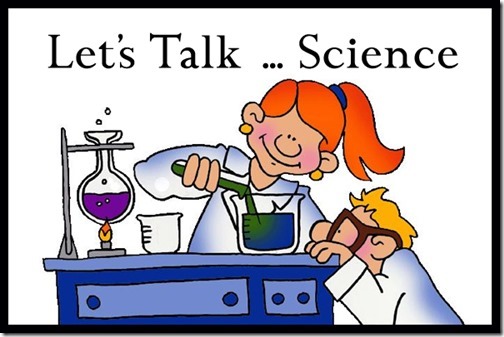
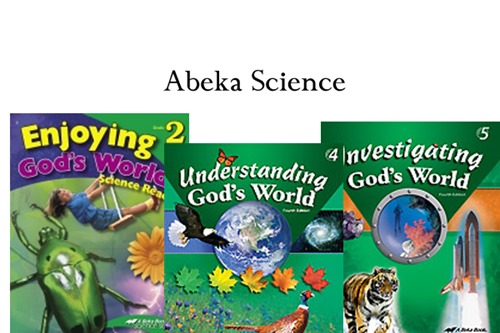
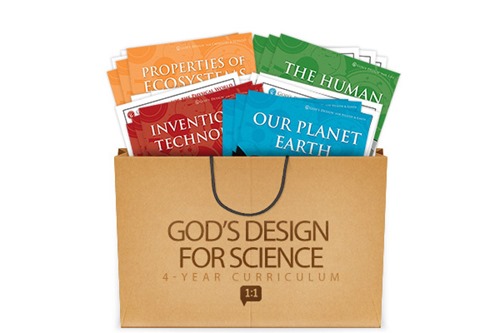
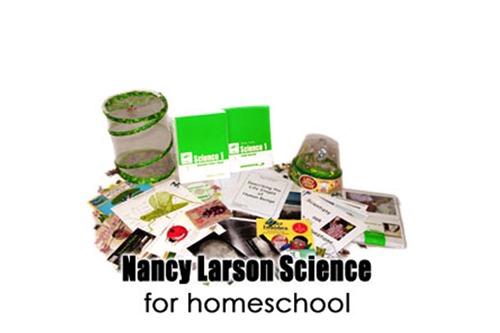
We use Apologia. We’ve done Anatomy and Swimming Creatures so far. I really like the layout of the books and the notebooks. I’ve found the content to be very interesting and I’m enjoying learning new things along with my daughter.
Jenny,
I’ve heard great things about Apologia and I’m specifically looking at the Anatomy books. You’re the first one, in the few I’ve talked to, that have used the Anatomy. In your opinion, is it good for a 7 and 5 yr old? My boys have been asking lots of questions about their heart, blood, bones, etc. and I’m hoping it will help lead to healthy conversations about their own body. Thanks!
Laura
The anatomy is geared for fifth grade and up. You might be able to use it for a really bright fourth grader but it would definitely be too much for a 7 and 5 year old. Its worth the wait though. It was hands down our favorite and I cannot wait to use it again with my little one. The only one I would attempt with a five year old would be the astronomy. My daughter did great with that at 5 but the rest were better saved until she was a bit older.
Thank you Stefanie! Glad I didn’t order it yet. 🙂
Laura, if you really want to give the kids a lesson in anatomy, I can share some lapbook/unit studies that we have on this topic. My boys are 4 & 7and could get them through them. They just wanted to learn about their bodies.
Laura,
I have been using Apologia too, and since I didn’t want to wait until 5th/6th grade to introduce the organs and systems in the human body, I picked up this book (http://www.rainbowresource.com/proddtl.php?id=000874). It’s geared for younger children, and they learn about each organ/system, color a picture of it, then attach it to a “life size” cut out of a body. My kids and I will spend a few weeks putting it together, in addition to doing their regular Apologia curriculum. It might be enough to answer your boys’ questions. If they want more detail, you could certainly go more in depth, but it’s not a full year’s worth of science, by any stretch. Good luck!
Danielle
Thank you for this idea Danielle! I think this might be perfect for my Kindergartener and Preschooler. What a fun, basic overview of the miracle of how our bodies work!
Thanks. I am going to order this.
Laura, I used it with my daughter when she was 7 (2nd grade). We bought the Junior notebook to go along with it. She is not advanced, but enjoyed it. Did she retain it all? No, but it taught her a lot. She really enjoyed the edible cell experiment that we made. She is almost finished with 3rd grade, but can still recall information from the anatomy lessons. Apologia makes it fun to learn and easy to read and keep up with. I’d say go for it! Oh and I helped her with the writing in the notebook as well. We didn’t do the copywork pages.
I used the anatomy this year for my 4th and 2nd grader. They loved it! We actually do it together with me doing the reading and whatever explaining they may need. Some of the chapters are a little much for their grade level, but with those I”ll quickly read over it and just focus on main points for the reviews. I do not think I”ll purchase the notebook next year (we are doing Flying Creatures). We didn’t do any of the copywork since we already have a handwriting program and because I picked and chose grade appropriate review we just didn’t really use it much. We did some of the experiments but not even close to all…it depends on how much time we have and how much I think we need the visual.
We have used Real Science 4 Kids the Physics, Chemistry, biology and Astronomy books. I plan on ordering the Geology book for next year. I love her writing style and the chapters are short and written well for young children. We have done most of the lab but I have gone else where to find additional lab work to reinforce learning. I am always tweaking curriculum that I buy so that is nothing new for me.
Here is one of my posts on the lab we did using Real Science 4 kids
http://lifesadventures-amb.blogspot.co.uk/2013/02/constellation-cards.html
We also have used Real Science 4 kids. I like particularly that the books are available electronically so I can load them to our Nook and take them anywhere. I have used the younger and middle school versions…the only thing I dislike is that there is not anything for highschoolers. I particularly like her world view neutral approach. Some families do no want this but I find apologetics can be added to discussion and non homeschool officials are willing to accept that it is “real science” not religion.
We have used Apologia (Astronomy). I appreciated that it was creation based and reinforced our thoughts on that area of study. But, I wasn’t completely sold on it. We found it to be a bit dry – may have been my teaching style (hanging head with embarrassment). My DDs (age 6 & 8) liked working in their Jr. Notebooks, so that was a plus.
This year, we are embarking on Noeo Science. It uses a real books approach as opposed to a “textbook.” I think it will fit our personalities and family learning style.
Who knows, we may go back to Apologia?!
the Noeo Science caught my eye as well….i so appreciate the “living book” approach. I ended up going with the Apologia Astronomy for next year though. I’m glad to hear your kids enjoyed the Notebooks, i’m planning on getting those to make it more fun.
My sister found the Astronomy pretty boring as well. There wasn’t as many activities and experiments that we had with Anatomy or Swimming Creatures.
We tried Astronomy this past year for our 9,7, and 6 year old. The kids and I were not impressed at all. I have heard great things about the other books though. I chose to teach each child separately this year for science but might try Apologia out again sometime in the future.
I know this is an older post, but I’m curious about how your change went from Apologia to Noeo – I was actually considering making the opposite move as I found that the Noeo Chemistry curriculum did not have a very God-centered approach and even had a few errors that did not keep up with a Biblical worldview.
I use the God’s Design Series for our co-op. I find it to be disorganized. There are 3 books for each topic and sometimes they overlap in subject matter. So I find myself teaching from all the books at the same time to really cover a topic. I do like the 4 year approach of them. So I let their topics (life science, astronomy, chemistry, and physics) be a guide to what other materials I find. I think they are much better for 5-8th graders than for the younger grades like they claim. I prefer the Christian Kids Explore Series. They are put together better and are a lot more fun. They are easy for someone who loves science as well as someone who doesn’t love science to teach. I also have the real science 4 kids pre-level 1 chemistry for my 1st grader and K4 kid for next year. It’s not in depth but it is short and they break the concepts down for little kids. They also have lots of cute pictures.
I am glad to hear from someone who has used God’s Design for Science. I was looking at it for next year, but now I think I’ll hold off until they are older.
I’m thinking the same thing!
What I don’t understand about it is how I’d have enough time to cover all the books if I start it in 5th grade…any insights on timing of this curriculum? I’m so in love with it (the idea of it, online) but I’m confused about how to get through all four sets of books.
I am assuming that it would be 5th through 8th grades, and then you would start high school.
Hi ladies! I just came across this and LOVE God’s Design! It is actually an 8 year curriculum… 4 series, each to be repeated. So for example, we started with God’s Design for Life with my first grader last year. We are proceeding with the next series now and will until all four series are done (reading only the “beginner” level portion of each chapter…verrrry easy reading for younger ages/understanding. Then, in 5th grade, we will start at the beginning again (GDforLife), proceeding to go in order again through 8th grade, this time reading the more advanced portion of each chapter. I find it to be very well organized and can’t say enough wonderful things about it! The ONLY flaw I see is a lack of projects for the younger ages. BUT, these are super easy to supplement with simple experiments/crafts found online (I use Pinterest for this allll.the.time,). 🙂 Just my 2 cents, but I think it is a super series that will last years as I take all of my children through it from grades 1-8. Turns out to be a bargain if you look at it that way! 🙂
We’re going from A Beka to Sonlight this year and I’m pretty excited about it. It looks similar to the Nancy Larson kit mentioned above, but thankfully it’s about 1/2 the price! There are tons of experiments throughout the year and that seems to be what a lot of kids love! I know my 5 yr old daughter is definitely hands on and will really enjoy this. I was disappointed that many of A Beka’s science experiments seemed to be off season with the school year. Experiments in the winter dealing with ants and bugs, not really possible!
We did SonLight’s CORE A this year and I was highly disappointed in the science for Ks. Their science kit activities are only for one day and it didn’t even related to what we had been reading that week. I loved the books that come with the program, but you just skim the surface of the topics. They do provide suggestions for hands on fun for the other days, but I purchased it thinking it was going to have everything I needed with little prep like Nancy Larson, however that wasn’t the case.
Go for it! We switched from Abeka to Sonlight and my kids keep saying how much they love Sonlight much more…I am impressed how someone like me, who did not care much for Science throughout my entire education teaches it to children who enjoy it and love the experiments! Even my toddler asks if it is “Experiment day”! 🙂 The curriculum is very easy to follow. We are finishing our Science K although I have a first grader and Kindergartner, but I find it better suits my first grader since my Kindergartner is beginning to read/write and in order to answer the questions you have to put the answers on the board for her to copy.
Because we started with the Calvert School curriculum we began in Grade 1 with MacMillan/McGraw-Hill’s “Science a Closer Look” series ( http://www.macmillanmh.com/science/2008/student/ ). The text is terrific – well written, great images and illustrations. My son enjoys them., but the lack of a work book makes it a challenge. The series goes through to Grade 6 and for the time being we are likely to continue using the books… I have however been referred to Super Charged Science ( http://www.superchargedscience.com/ )… has anyone used this one?
We have been using the “Science: A Closer Look” series by McMillan/McGraw-Hill. We are in our second year and we love the content and the images, but there is no workbook and my son works better with workbooks. So while we intend to continue, we are on the lookout for other options. Super Charged Science was recommended. Has anyone used that curriculum?
Apologies for the duplicate – both the human and the computer seem to have operating issues… not enough coffee…
We are using A Beka and books from the library.
I have been using Apologia for elementary for several years now. We have done astronomy, botany, flying creatures, swimming creatures and anatomy. We love all of them! I really enjoy the notebooks that go along with them, too. This year we are, for the first time, using their middle school book – general science. It is a ton more reading, but I guess that is appropriate as the grades get higher.
I am considering Alpha Omega and would appreciate anyone’s experience with that. I was also considering the AIG curriculum, but like others I think I will hold off until mine are older. Specifically I have 3rd and 4th grade, but any opinion on Alpha Omega style would be appreciated.
Letitia,
We have used Alpha Omega Academy and switched this year to A Beka and are much happier. We just started with A Beka but my kids are much happier with the curriculum. I currently have a 10th grader and 2nd grader, we used Alpha from fifth grade until just recently switching. It all depends on what you are looking for and the learning style of your kids, I have also heard amazing things about Apologia. Hope this helps:)
We used switched on schoolhouse from A&O this year and I wasn’t too impressed. The experiments do follow the curriculum, but we were using 3rd grade and some of it was confusing for my daughter and even for me in how they explain things. Of course the other curriculum they offer might be different. We will be using something different next year.